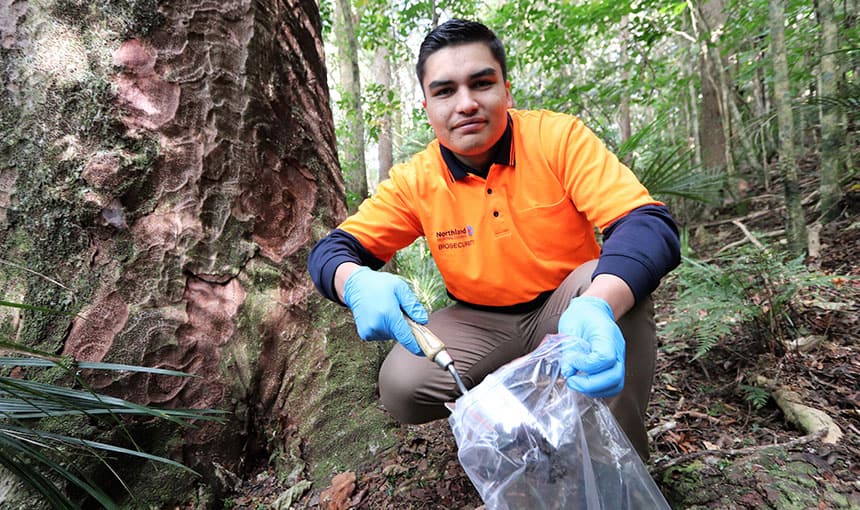The three-strong team was assembled late last year and will join the efforts to protect Northland from the microscopic pathogen that causes kauri dieback.
Adrian Peachey is one of the new recruits, with the job of identifying and managing the spread of kauri dieback disease in Te Tai Tokerau.
“It can vary between fieldwork like soil sampling, to engaging with stakeholders, schools, communities, hapū, whānau, iwi and the general public to help save our kauri.”
The NRC and the BioHeritage Challenge are both part of a multi-agency, national kauri dieback programme.
NRC chairman Bill Shepherd says the council has been working extensively with private landowners because a lot of kauri in the region are on private land.
“We’ve been working with them on tailor-made kauri dieback management plans to try to lessen the risk of this disease spreading from private land and district council reserves. We’re also training landowners to identify symptoms and report these.”
As one of the newest on the taskforce, Adrian is looking forward to learning more about kauri dieback, engaging with the Northland community and doing his best to save these taonga trees at the top of Aotearoa New Zealand.
He was hired after finishing his Bachelor of Science, majoring in bioprotection and biosecurity at Lincoln University last year.
After his studies, Adrian worked on a two-part summer scholarship with the Bio-Protection Research Centre. He looked at the Wai 262 claim and its application to academics, along with the protection of mātauranga Māori.
Adrian says this mahi (work) awoke a passion in him that inspired him to follow the path he is now on.
“I have been lucky enough to follow in the footsteps of amazing people who have paved the way for the next generation,” he says.
